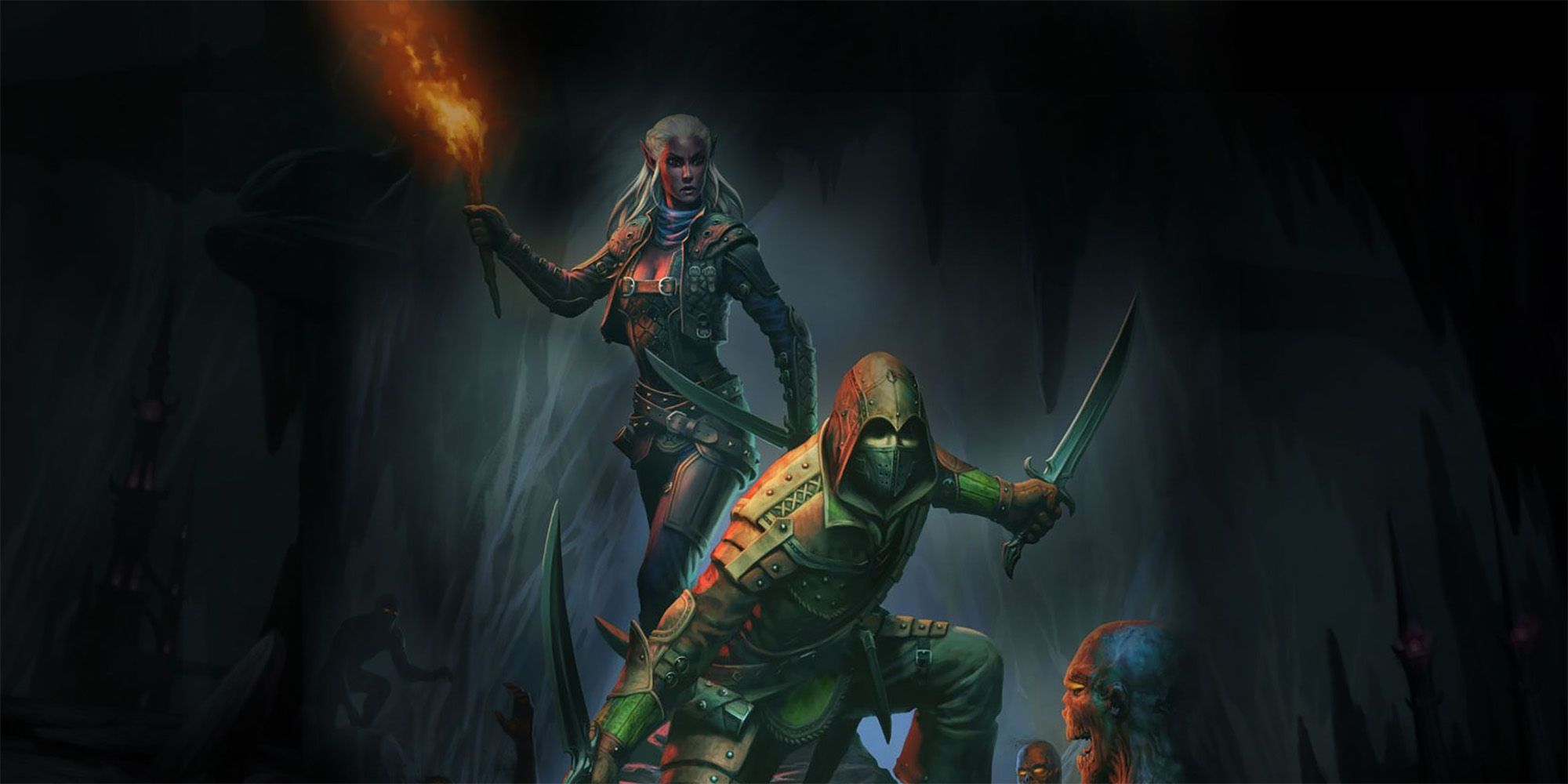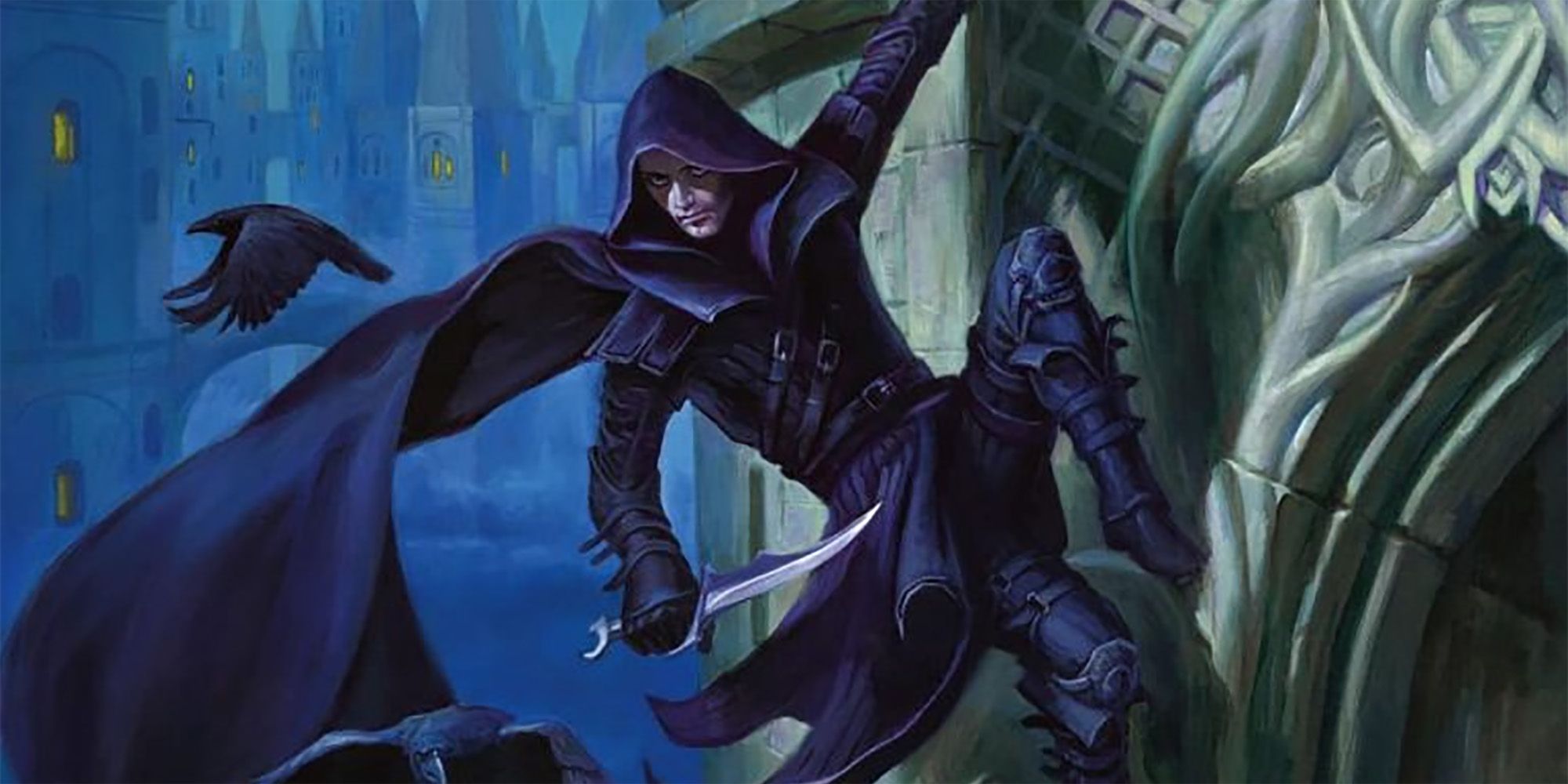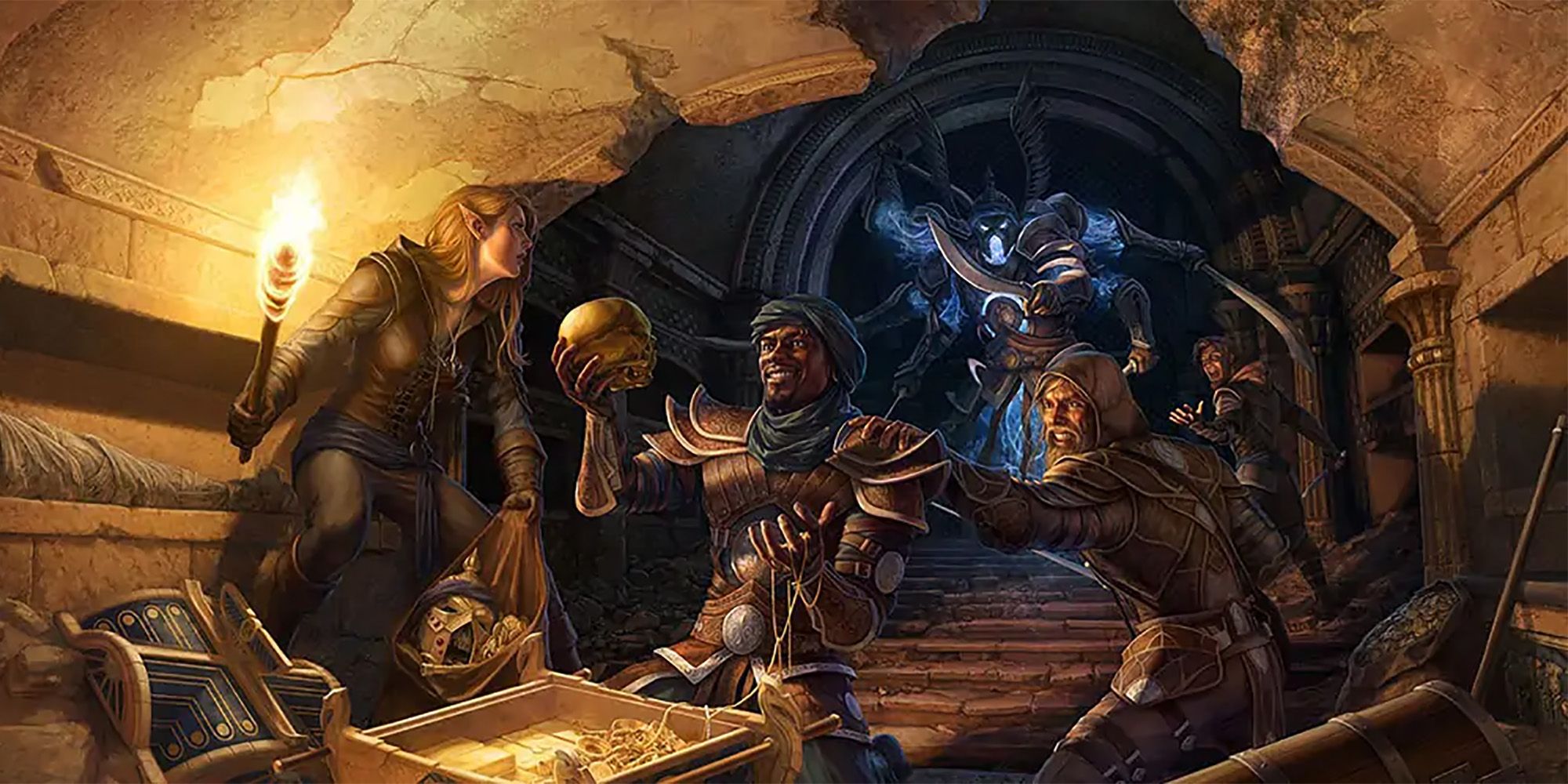
Building the perfect Dungeons & Dragons character is one of the most exciting parts of starting a new campaign. Rogues offer many archetypes to choose from, but one of the most intriguing is the assassin. Assassins are masters of stealth and poison who can change their appearance almost at will to ensure their identity and purpose remain hidden so they can carry out the important work they must do.
Be they killers for hire, bounty hunters or spies, assassins rely on their wits and training to guarantee a quick extermination of the party's foes. A well-trained assassin has opportunities to deal an enviable amount of damage in a single blow--especially if an enemy doesn't see them coming. They are dangerous predators, and some thrive on the thrill of the game that leads them to their much-deserving prey.

Assassins require a certain personality to carry out the work they do. While a character's backstory may not necessarily affect the statistics that boost their performance, the roleplaying aspect is still an essential part of that character's presence. Important questions to ask when crafting the Assassin's backstory include elements related to what brought them into their current line of work.
Did they witness something horrific that drove them onto a vengeful and heartless path? Are they coldhearted in the sense that they see death as a necessary part of life's cycle, and because some people deserve to die, why not profit by carrying out the task to see they get what they deserve? Were they trained in the art of espionage, and killing is simply a necessary part of their job? Take time to consider the character's history, as the elements of their life that shaped them into who and what they are at the start of the game will determine how they present themselves to others, as well as how they grow and change throughout the campaign when faced with certain triggers and elements.

Any of Dungeons & Dragons many races could potentially be an assassin, but when building the perfect character, racial choices often factor heavily into the boons those races receive. The primary statistic rogues need to focus on is Dexterity because it contributes to their stealth, AC, initiative bonus and modifiers for attacks and damage.
Choosing one of the races that offer a Dexterity boost, like elves, halflings, humans, forest gnomes and half-elves, offers a leg up as soon as character customization begins. Taking time to look through those races and the stat boosts they provide is an important part of creation.

Beyond maxing out Dex, other stats factor heavily into providing an assassin with the tools they need to infiltrate, connive, convince, intimidate and more. Charisma is an essential secondary stat to focus on, as it grants an assassin the ability to lie effectively, which is often necessary to ensure they get into the places they need to be to exterminate enemies.
While not as important, Intelligence and Wisdom are still essential to skills like investigation and perception, both of which come in handy for an assassin as they search for clues leading to their mark and the perfect method of infiltration. Strength, while handy for climbing, does very little for a rogue, as they often rely on acrobatics over athletics.

Rogues are granted four proficiencies at the start of the game, and, depending on racial and background choices, there is an opportunity for up to eight proficiencies total. They are also given two Expertise options, which allow for double proficiency bonus when making checks.
The most obvious proficiency for an assassin to choose for Expertise is stealth, as it grants them the ability to sneak and hide. It will also heavily influence abilities like Sneak Attack and Assassinate, two of an assassin's most prominent tools in battle. Other useful proficiencies include Sleight of Hand, Investigation, Deception and Perception. Look carefully at what each one will bring to the assassin's methods and choose wisely.

Attaining certain levels provides characters an opportunity to increase their Stat scores or take a feat. It's important to max out Dex as quickly as possible, but there are also various useful feats that help an assassin hone and perfect their craft. One such feat is Alert, which grants a +5 bonus to initiative that could potentially guarantee going first in combat when coupled with a high Dex modifier. It's important for an assassin to have the opportunity to strike first, especially if the party comes upon an enemy stealthily because the Assassinate skill at level three comes with incredibly effective benefits that could potentially take an enemy out in one shot, especially if they are surprised.
Other useful feats include Sharpshooter, which hones ranged attacks and offers an extra +10 to damage on a successful hit, and the Lucky feat grants 3 Luck points a day that can be used to reroll dice that don't quite add up. With an abundance of skills from Sneak Attack and Assassinate, which grants the player an opportunity to strike hard and fast from a stealthy position and critically hit if the enemy is surprised, to Uncanny Dodge and Evasion, a well-built assassin has all the tools they need to take out enemies with swift precision. Taking the time to carefully consider the assassin's build during character creation all but guarantees a character the rest of the party will come to rely on, no matter how mysterious, shady and elusive they might seem.
0 Comments